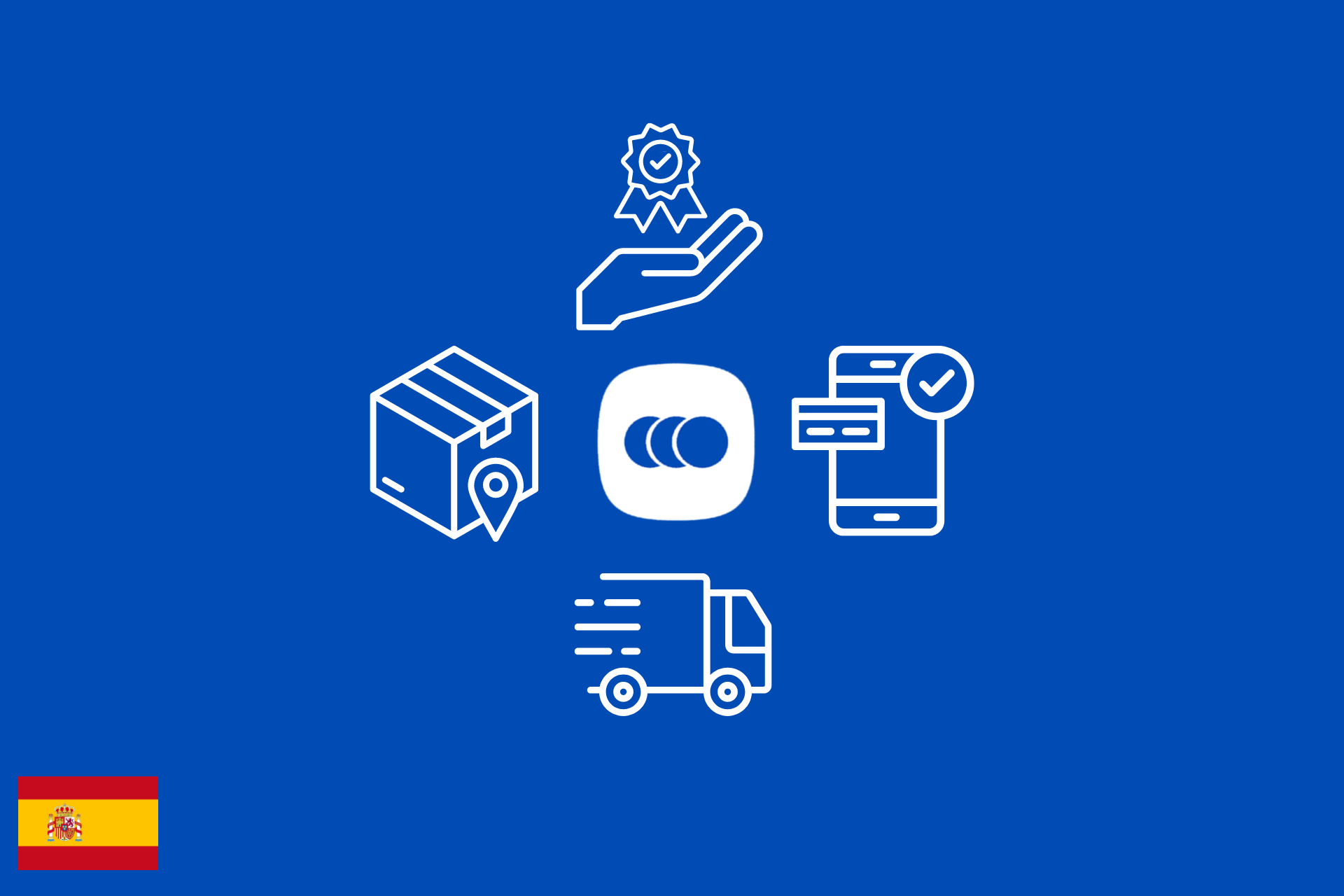Comprendre les canaux de distribution et la concurrence sur le marché de la seconde mainArticle
9 février 2024

Le contenu que vous trouverez au sein de cet article :
Alors que le marché de la seconde main continue de se développer, de nombreux acteurs se battent pour se faire une place sur ce marché. Quelques canaux de premier plan émergent sur ce marché et se répartissent en deux catégories : en ligne ou en boutiques.
Canaux en ligne
Les places de marché généralistes C2C
Le premier canal en ligne est constitué par les places de marché généralistes C2C. Il s’agit de plateformes en ligne sur lesquelles les vendeurs particulierspeuvent directement vendre ou louer leurs produits aux clients finaux. Ce service peut être gratuit pour les particuliers, ou la place de marché peut choisir de faire payer une somme modique. Leboncoin, eBay et Vinted sont des exemples d’acteurs de ce type. Les places de marché généralistes s’équipent peu à peu pour proposer des services additionnels comme le paiement sécurisé et la livraison par colis.
Les places de marché spécialisées C2C
Ensuite, il y a les places de marché spécialisées C2C, qui se distinguent des plateformes généralistes par leur parcours client adapté au secteur dans lequel elles sont positionnées. Cela permet aux clients d’accéder à une offre plus pertinente et de filtrer les produits en fonction de critères spécifiques. Les places de marché spécialisées sont l’occasion de se retrouver entre passionnés, de sport ou de musique par exemple. On y retrouve en général des biens plus onéreux et des utilisateurs plus exigeants.
Les places de marché des réseaux sociaux
Enfin, il existe des places de marché directement sur certains réseauxsociaux, comme Facebook Marketplace. Ce canal de vente met en relation les acheteurs et les vendeurs, tout en permettant aux utilisateurs de filtrer les produits par catégorie ou par lieu. Bien souvent, aucun outil transactionnel n’est proposé, au détriment des utilisateurs qui sont livrés à eux-mêmes pour procéder à la transaction. Cela laisse de la place pour les fraudes en tout genre, et à beaucoup d’insatisfaction.
En boutiques
Les magasins de consignation
Les magasins de consignation sont des magasins physiques où des vendeurs professionnels stockent des articles tels que des vêtements, des meubles et des appareils électroniques, qu’ils acquièrent auprès de particuliers dans le but de les revendre. Ils agissent donc en tant qu’intermédiaires et fonctionnent sur la base d’un système de paiement à la commission. Le revendeur est rémunéré par le biais d’une commission, mais uniquement lorsque l’article a été vendu.
Les magasins d’achat et de revente
Contrairement aux magasins de consignation, les magasins d’achat et de revente ont une approche beaucoup plus directe. Les professionnels de l’achat et de la revente achètent immédiatement les biens aux particuliers avant de les revendre. L’accent est clairement mis sur un chiffre d’affaires plus rapide, ce qui en fait un choix privilégié pour les vendeurs qui souhaitent des transactions et des paiements rapides.
Les antiquaires
Les antiquaires jouent également un rôle important sur le marché de la seconde main. Il s’agit de professionnels dont le travail consiste principalement à acquérir, restaurer et revendre des objets de valeur ou de qualité. Qu’il s’agisse de meubles anciens, d’œuvres d’art ou de bibelots, ces professionnels acquièrent et revendent dans le but de dégager une marge.
Les marchands d’articles d’occasion et marchés aux puces
A l’instar des antiquaires, il existe des brocanteurs et les marchés aux puces sont des espaces physiques où sont vendus des objets d’occasion, principalement des meubles.
Toutefois, la différence essentielle réside dans le fait que ces professionnels ne garantissent que la vente de l’objet en l’état et ne sont pas tenus d’authentifier ou de dater les objets acquis.
Les acteurs de l’économie sociale et solidaire
Enfin, les acteurs de l’économie sociale et solidaire sont les associations caritatives telles que Emmaüsacteurs importants du marché de la seconde main, à travers la vente de produits usagés dans leurs magasins ou via leur site internet. La différence évidente entre ces organisations et les autres établissements est que les revenus générés sont souvent destinés à des initiatives sociales.
La concurrence s’intensifie et de nouveaux acteurs entrent sur le marché de la seconde main
A mesure que le marché de la seconde main gagne en popularité, les acteurs en ligne spécialisés gagnent du terrain sur les plateformes généralistes.
Avec une offre quasi exhaustive, les plateformes généralistes touchent un public beaucoup plus large que les places de marché spécialisées et génèrent logiquement plus de ventes.
Plus anciennes et plus établies, elles ont déjà réussi à capter des clients et à construire une image de marque reconnaissable par le grand public. En ce sens, le leader français Leboncoin, avec 29 millions de visiteurs uniques par mois en 2022, est le 2ème site de commerce électronique le plus visité du pays. De plus, il est le 6ème site web le plus visité derrière les géants mondiaux Google, YouTube, Facebook, Wikipedia et Amazon. En 2020, Leboncoin a accueilli des transactions d’une valeur de 25 milliards d’euros, ce qui représente 1 % du PIB du pays. Cependant, les plateformes de seconde main spécialisées commencent à concurrencer sérieusement les plateformes généralistes.
Ces plateformes de seconde main spécialisées se distinguent par une meilleure ergonomie que les plateformes généralistes, qui peuvent parfois ressembler à des places de marché « fourre-tout ». En outre, elles disposent d’options de recherche et de filtrage des produits plus intuitives, ce qui joue certainement en leur faveur. En bref, elles offrent une expérience d’achat plus fluide et moins fastidieuse que les plateformes généralistes.
Cela a poussé les acteurs généralistes à réagir à l’ascension fulgurante des plateformes spécialisées. Par exemple, en 2018, Leboncoin a racheté la plateforme de mode de seconde main Vide-dressing, ce qui permet à Leboncoin de s’associer à un acteur spécialisé dans la mode qui jouit d’une image plus premium. Autre avantage de cette acquisition, Videdressing prend en charge des services complémentaires tels que le paiement en ligne, la vérification de la conformité des articles, la livraison et la garantie de remboursement. Tout cela en échange d’une commission facturée à l’acheteur. Une telle acquisition permet donc à l’acteur généraliste de mieux se positionner sur l’un des segments du marché de la seconde main qui connaît la plus forte croissance.
Matrice des principaux acteurs européens du marché de la seconde main
Vous trouverez ci-dessous les principales entreprises d’articles d’occasion C2C en Europe, classées par type de modèle économique (C2C ou C2B2C) et par segment dans lequel elles sont positionnées. Cela va du généraliste à la mode/beauté, en passant par les prestations de services.

Pour en savoir plus sur la manière d’améliorer les performances sur le marché de la seconde main, n’oubliez pas de consulter notre nouvelle étude de marché européenne 2024, qui décrit en detail les tendances et les attentes de ce marché en plein essor.
Vous lancez un projet de seconde-main ?
Tripartie permet aux Retailers, Marketplaces et grandes entreprises d’investir le marché de la seconde-main et des plateformes entre particuliers rapidement, sans risque opérationnel et réputationnel.
Tripartie a une approche basée sur la confiance et fournit un ensemble d’outils pour assurer des transactions sûres et conformes ainsi qu’une résolution efficace des litiges utilisateurs. Réservez une démo produit !



